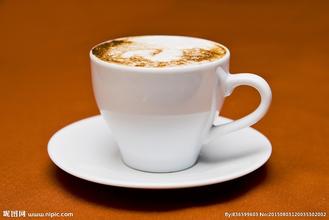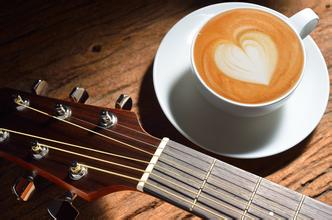Introduction to the unique planting environment of Yinshan manor coffee varieties with sour, bitter, sweet and alcohol
The United States is a coffee-loving country, but the reporter did not find any "coffee beauty" in several major supermarket chains and Starbucks coffee shops in Houston. According to a waiter at a Starbucks coffee shop in downtown Houston, their coffee is mainly made from beans from Africa, Colombia or Indonesia. Blue Mountain Coffee is less on the market, and 90% of Blue Mountain Coffee is owned by the Japanese. At present, the "Blue Mountain style" coffee seen on the market does not contain a positive blue mountain coffee bean. One kind of "Jamaican mixed Blue Mountain" coffee is a mixture of 30% Blue Mountain Coffee and 70% of the best Jamaican Alpine Coffee. The above two kinds of coffee try to imitate the taste of Blue Mountain Coffee, but can not achieve the perfect state.
The reporter interviewed several customers near the coffee shop, some of whom had not even heard of Blue Mountain Coffee. Blue Mountain Coffee has been given a "cold reception" in the United States, which has something to do with American coffee drinking habits. Since the 1970s in the United States, seasoned coffee has gradually become everyone's favorite coffee. It is made by adding seasoning spices to the coffee beans or adding a seasoned coffee companion to the brewed coffee. There are hundreds of seasoned coffees, and Blue Mountain Coffee, which is currently the most popular in the United States with vanilla, hazelnut and almond flavors, has maintained its status as the best today and is closely related to local business policies. In 1932, Jamaica adopted a policy to encourage coffee production to reduce the island's dependence on sugar exports. Unlike most coffee-producing countries, the local government does not plant a large number of high-quality and poor-quality coffee in order to increase output, but to give priority to quality, preferring to sacrifice the output of coffee to ensure the quality of Blue Mountain coffee. Therefore, Jamaica is currently one of the countries with low coffee production in the world. Brazil, the world's largest coffee exporter, produces 30 million bags of coffee a year, while Blue Mountain produces only about 40, 000 bags a year.
In addition, the processing and production of Blue Mountain Coffee is also very elegant. Strict and detailed standards have been established for processing, baking and packaging, and there are regulations on what kind of organic fertilizers are needed during the growth period. All are harvested manually at harvest time. Jamaica is also the last country to still transport coffee in traditional wooden barrels.
Only through this series of harsh standards set by the Jamaica Coffee Industry Authority can coffee obtain a guarantee issued by the government. officially known as "Blue Mountain", the unique flavor of Blue Mountain Coffee is related to the unique geographical location and climatic conditions of Blue Mountain. Blue Mountain is located in the coffee belt between 25 degrees north latitude and 25 degrees south latitude, with fertile new volcanic soil, fresh air, no pollution, rainy all the year round and great temperature difference between day and night. Most importantly, every afternoon, clouds cover the top of the mountain, which not only shades the coffee trees naturally, but also brings abundant water vapor, which makes the taste and aroma of Blue Mountain coffee outstanding.
Only coffee grown in the Blue Mountain area above 1800 meters above sea level can be called Blue Mountain Coffee. A coffee enthusiast whom the reporter knew in the United States was more "demanding". He insisted: "the coffee grown at an altitude of 2256 meters is Blue Mountain coffee." Coffee beans grown in the lower mountains of the island of Jamaica can only be named "Jamaican alpine coffee" because of their different qualities. In addition, the same coffee tree species, whether planted in Hawaii, Kenya, Papua New Guinea or anywhere else with a similar climate, cannot produce the flavor of blue mountain coffee beans.

Important Notice :
前街咖啡 FrontStreet Coffee has moved to new addredd:
FrontStreet Coffee Address: 315,Donghua East Road,GuangZhou
Tel:020 38364473
- Prev

Introduction to the characteristics of Atlanta Manor Coffee with outstanding fragrance
The difference in transportation between Blue Mountain Coffee and other coffee is that it is transported in barrels with a capacity of 70 kilograms, a replica of Bonifieur barrels produced in Guadeloupe in the last century. The barrel was originally used to carry flour shipped from the United Kingdom to Jamaica, usually with a trademark and the name of the manufacturer. The Coffee Industry Committee for all authentic Jamaican coffee
- Next

Introduction to the characteristics of Cliff Manor Coffee with rich flavor and mellow taste and no bitterness
In 1670, according to the Madrid Treaty, Spain formally ceded Jamaica and other places to Britain. The British immediately used the island of Jamaica as a base for their acts of piracy. Before the earthquake destroyed the port of Loire in 1692, it was once the capital of pirates in the Caribbean. Since then, the British built the city of Kingston and gradually built it into the central city of Jamaica, located in Galle.
Related
- Does Rose Summer choose Blue, Green or Red? Detailed explanation of Rose Summer Coffee plots and Classification in Panamanian Jade Manor
- What is the difference between the origin, producing area, processing plant, cooperative and manor of coffee beans?
- How fine does the espresso powder fit? how to grind the espresso?
- Sca coffee roasting degree color card coffee roasting degree 8 roasting color values what do you mean?
- The practice of lattes: how to make lattes at home
- Introduction to Indonesian Fine Coffee beans-- Java Coffee producing area of Indonesian Arabica Coffee
- How much will the flavor of light and medium roasted rose summer be expressed? What baking level is rose summer suitable for?
- Introduction to the characteristics of washing, sun-drying or wet-planing coffee commonly used in Mantenin, Indonesia
- Price characteristics of Arabica Coffee Bean Starbucks introduction to Manning Coffee Bean Taste producing area Variety Manor
- What is the authentic Yega flavor? What are the flavor characteristics of the really excellent Yejasuffi coffee beans?

